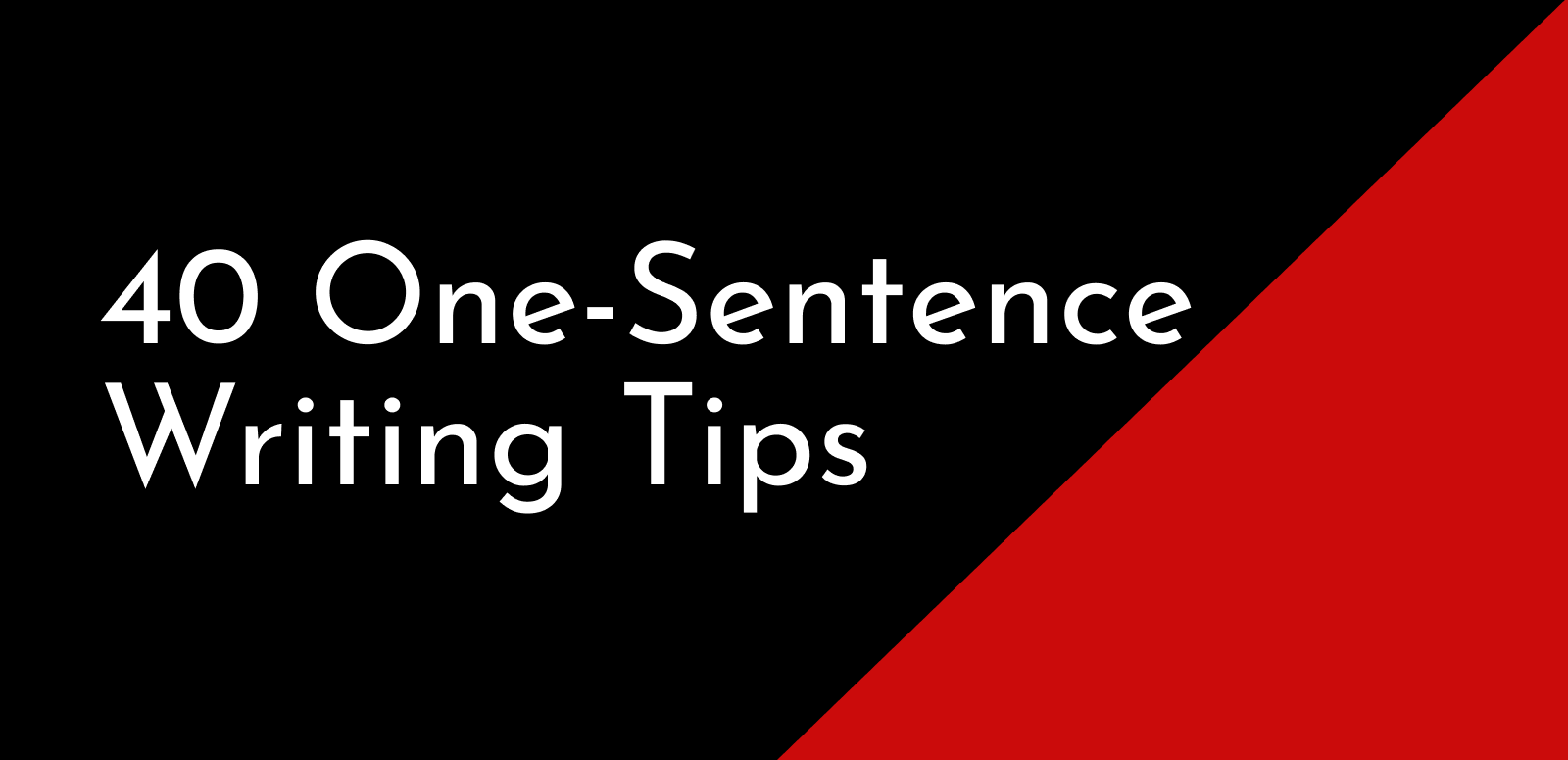Your writing defines you.
Whether you write blog posts, books, newsletters, proposals, emails, or just scribble notes to yourself, writing is a foundational element to your work, art, and life.
Following are a collection of lessons I’ve learned over the years to help you get the most out of the next thing you write…whatever that may be.
1. The things you write will never be “done” and once you realize that you’ll be able to publish them.
2. Eliminate 20% of the words you wrote to make your draft 100% better.
3. The most valuable thing you can learn from successful writers isn’t how they write, it’s how often they write.
4. Great writers are great editors.
5. Writing that resonates with an audience isn’t about what’s in the writer’s head — it’s an expression of what’s in the reader’s head.
6. There’s no such thing as an “aspiring” writer — if you write, you’re a writer and if you don’t, you’re not.
7. You don’t need ideas to write, you need to write to find ideas.
(Speaking of ideas, For The Interested will help you get the most out of yours.)
8. First drafts feel bad, but everything after it feels good.
9. Reading doesn’t make you a better writer, writing does.
10. It’s not about having something to say — it’s about having the guts to say it.
11. “Wow, that had great grammar,” said nobody ever.
12. Writer’s block is just an inflated sense of self-criticism.
13. The only guarantee in writing is the 100th thing you write will be infinitely better than the first.
14. “I can’t write” is a lie.
15. 75% of writing isn’t writing — it’s thinking, editing, and publishing.
16. Writing is an idea-delivery mechanism, so your writing can only be as good as your ideas.
17. Writing is the rare skill that makes you better at everything you do.
18. To impress people with your writing, stop trying to impress people with your writing.
(It also helps to read How To Become A Better Writer.)
19. Twitter is a gym for writers.
20. Writing is a game: The one who conveys the most meaning in the fewest words wins.
21. The first sentence often determines the fate of a piece of writing.
22. Don’t connect all the dots for the reader — let them have some fun.
23. The good news is you can write anything you want. That’s also the bad news.
24. No one talks about the brilliant fourth paragraph if the first three paragraphs are boring.
25. The more hesitant you are to press publish, the more likely what you wrote is to resonate with people.
26. Some people won’t “get it,” but that doesn’t mean it’s not good — it means it’s not for them.
27. If you’re writing for yourself you shouldn’t expect to attract an audience.
28. Authenticity is as important as creativity.
29. The attention your blog post gets is an outcome of the curiosity your headline triggers.
30. You don’t need to be right — you need to be interesting.
31. When you write something that’s only relevant today, you only have today to capture value from it.
32. Write like no one’s listening and everyone needs to.
33. Your writing is a reflection of your environment — change the environment and you change the writing.
34. When you invent a word or phrase you get to define and benefit from it.
35. Writing is rhythm.
36. Throw in the occasional one-word paragraph.
37. You can write about what happened, but it’s more interesting to write about the impact of what happened.
38. When in doubt, write a list.
39. The secret to writing is a paradox: Confine your ideas to a box in which anything is possible.
40. You’ll never be able to predict which things you write are going to be home runs so take a lot of swings.
My newsletter empowers creators with a weekly dose of ideas and inspiration to help you better produce, promote and profit from their creations.
